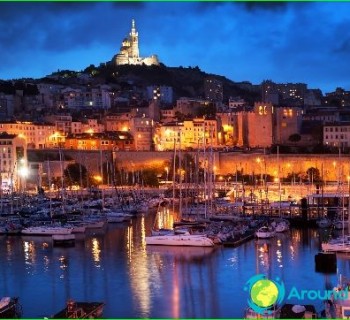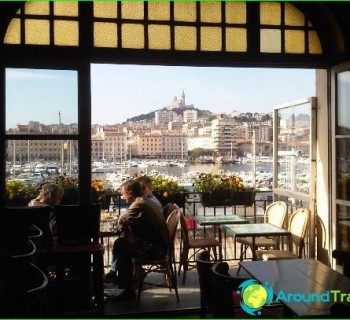The history of Marseille
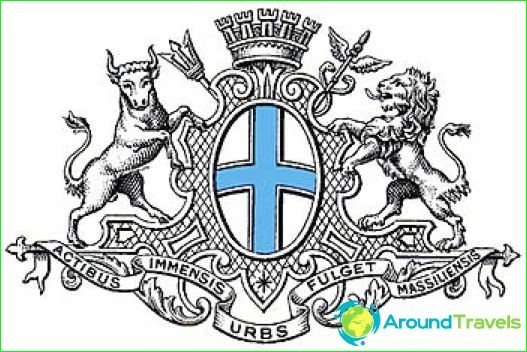
Marseille is a city in the south of France on the shores of the Gulf of Lyon near the mouth of the Rhone River. It is the second largest city in France and the largest commercial port in the Mediterranean..
The lands of Marseille and its environs were inhabited about 30 thousand years ago, which is confirmed by the ancient rock paintings found in the Koske cave. The oldest drawings date back to around 27,000. BC. and belong to the Gravette culture, and later - 19000. BC. and are characteristic of the Solutreian culture. Recent excavations near the railway station have also revealed the remains of Neolithic brick dwellings dating back to 6000 BC. BC.
Foundation and flourishing of the city
The history of modern Marseille begins around 600 BC. The city was founded by Greek colonists from Phocaea (today the Turkish city of Focha) and named Massalia. Pretty soon the city had already become one of the largest trade centers of the ancient world and had its own coinage. The peak of Massalia's heyday fell on the 4th century BC. At that time, the area of Massalia surrounded by fortified walls was about 50 hectares, and its population was about 6 thousand people. The economy was mainly based on the export of locally produced products (wine, salted pork and fish, aromatic and medicinal plants, corals, corks, etc.). The famous ancient Greek geographer and explorer Pytheas was a native of Massalia..
A strong alliance with the Romans has long provided Massalia with protection and an additional market. In the course of the Roman civil wars, also known in history as the Civil Wars of Caesar (49-45 BC), Massalia supported the optimates led by Wrath Pompey and as a result, after a long siege in the fall of 49 BC, was captured by the troops of Julius Caesar. Massalia lost her independence and became part of the Roman Republic. In the 1st century A.D. Christianity was born in the city, as evidenced by the catacombs discovered near the harbor, as well as the notes of the Roman martyrs. The diocese of Marseille was founded in the 1st century..
The collapse of the Roman Empire did not affect Marseilles much. Unlike many cities and provinces that previously belonged to the empire, Marseille nevertheless continued to develop slowly. In the 5th century, the city fell under the control of the Visigoths, under whose rule it became an important Christian intellectual center, and already in the 6th century it again became one of the largest trade centers in the Mediterranean. The attacks on Marseille by the Franks in 739 under the leadership of Karl Martell led to a sharp economic recession, from which the city could not recover for a long time. Did not contribute to the restoration of Marseilles in the next 150 years and the repeated raids of the Greeks and Saracens.
Middle Ages
A new era for Marseille began in the 10th century. The city quickly recovered its economy and trade relations. At the beginning of the 13th century, Marseille becomes a republic. In 1262, the city rebelled against the rule of the Anjou-Sicilian house, but the rebellion was brutally strangled by Charles I of Anjou. In the middle of the 14th century, Marseille experienced several violent outbreaks of the bubonic plague, and in 1423 it was plundered by the troops of the Aragonese crown.
By the mid-15th century, Marseille's economy had stabilized in no small part thanks to the patronage of the Count of Provence, René of Anjou, who viewed the city as a strategic naval base and an important trade center. He endowed the city with a number of privileges and initiated the construction of defensive structures. In 1481, Marseille united with Provence, and already in 1482 became part of the French kingdom.
In the following centuries, despite some unrest, Marseille continued to grow and develop. The year 1720 brought to the city an epidemic of the bubonic plague, known in history as «Marseilles plague». The epidemic quickly spread throughout the city and claimed tens of thousands of lives. The city was quarantined, and all trade relations were terminated. And yet the city was able to recover again in record time and not only restore old trade ties, but also establish new ones..
New time
The inhabitants of Marseille enthusiastically embraced the French Revolution (1789-1799). The volunteer regiment formed by the Marseilles went to Paris, singing along the way the revolutionary anthem, which was later named «Marseillaise» and became the national anthem of France.
In the 19th century, industrial innovations were actively introduced in Marseille, and the manufacturing industry developed. The rapid growth of the French Empire after 1830 also contributed to the active development of maritime trade, which, in fact, has always been the basis of the city's well-being and the guarantee of its prosperity..
The First World War did not actually affect Marseille, while during the Second World War the city was occupied by the Germans and was repeatedly bombed. Nevertheless, post-war Marseille managed to cope with the devastation, economic problems and the growth of crime, as a result, becoming an important economic, industrial, cultural and research center in France..
Photos of Marseille
Coat of arms of Marseille
Marseille in 1575
View of the Old Port
View of the port of Marseille
Cathedral of Notre Dame de la Garde
Palais Longchamps - Museum of Fine Arts
Faience museum
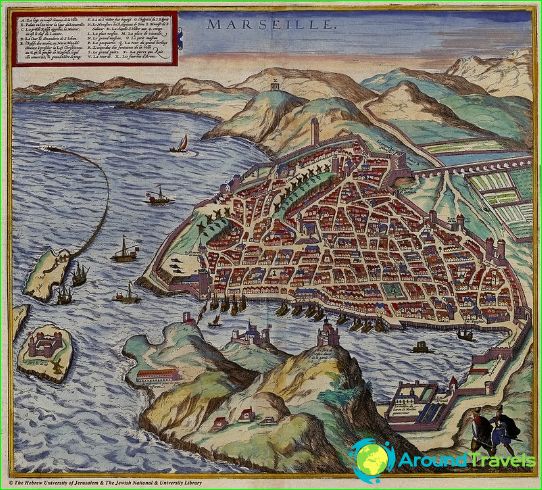 Marseille in 1575
Marseille in 1575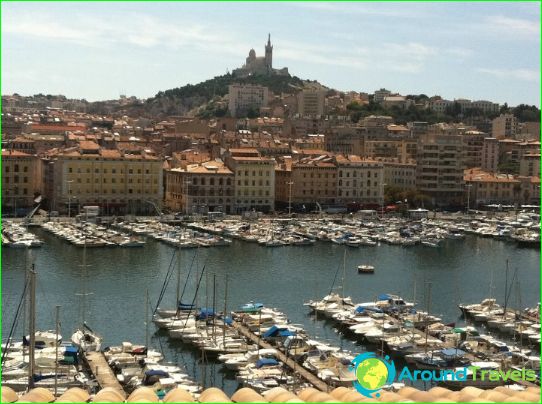 View of the Old Port
View of the Old Port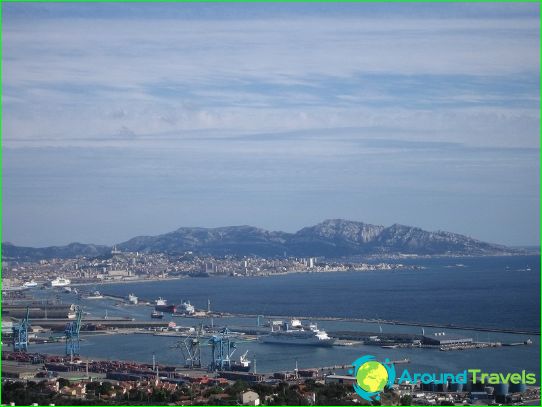 View of the port of Marseille
View of the port of Marseille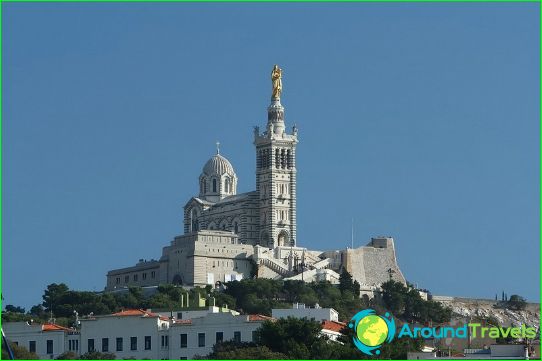 Cathedral of Notre Dame de la Garde
Cathedral of Notre Dame de la Garde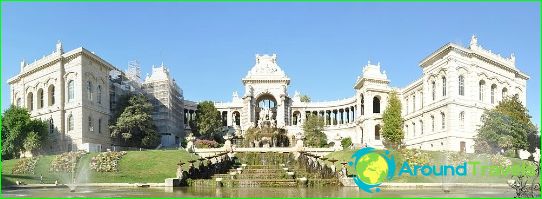 Palais Longchamps - Museum of Fine Arts
Palais Longchamps - Museum of Fine Arts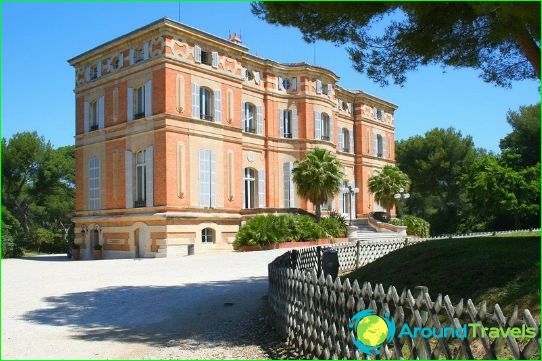 Faience museum
Faience museum